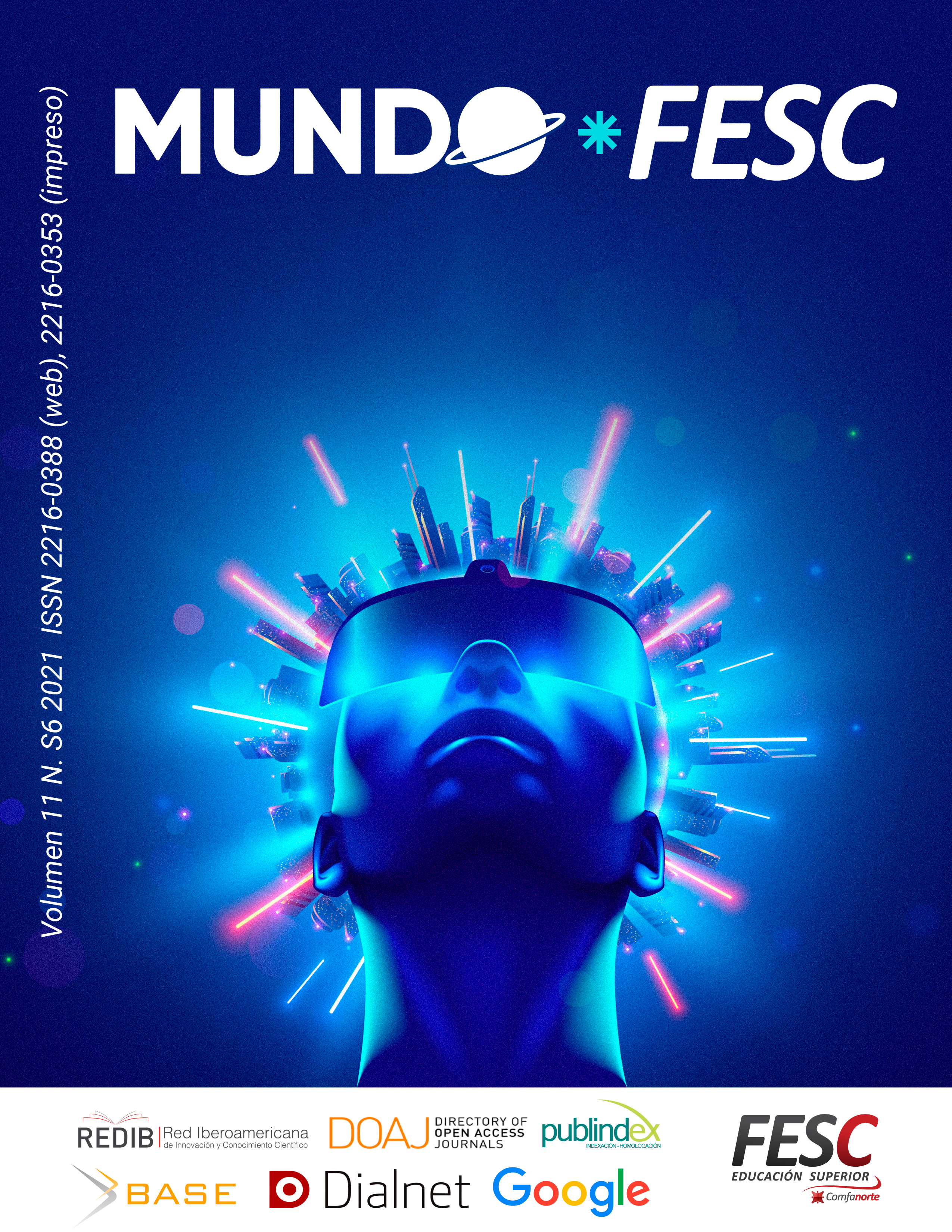Teaching BJT transistor as an amplifier using digital technology tools for experimentations
Keywords:
learning style, teaching style, experimentation, teaching-learning process, transistor.Abstract
The research characterizes the teaching style of the teachers and the learning style of the students of the Electronic Engineering Program of the Francisco de Paula Santander University, with the purpose of confronting those styles and elaborating a pedagogical proposal, in favor of meaningful learning of the BJT transistor concept as an amplifier. It is framed in the positivist paradigm, of descriptive type and experimental method. It contemplates four moments called diagnosis, strategy design, strategy application and evaluation of results. The proposal uses the analysis of documentary sources and statistical information, and uses instruments constructed in the research. The results indicate that teachers have a teaching style with a tendency to openness and formality according to the Martinez model, and students have a convergent and assimilative learning style, according to the Kolb model. In addition, the implementation of the teaching sequences as a pedagogical proposal, diminished the inadequate perception and increased the adequate perception, evidencing a conceptual change with respect to the representation of the BJT transistor as amplifier and, contributed with the construction of physical and mathematical concepts through the interpretation inductive and deductive.
Downloads
References
D. Kolb, R. Boyatzis, and C. Mainemelis, “Experiential Learning Theory: Previous Research and New Directions. In Perspectives on Thinking, Learning, and Cognitive Styles”, Routledge, pp. 227–248, 1999
P. Renes, and P. Martínez, “Una mirada a los estilos de enseñanza en función de los estilos de aprendizaje”, Journal of Learning Styles, vol. 9, no. 18, pp. 224–243, 2016
R. Boylestad, and L. Nashelsky, Electronic devices and circuit theory, Prentice Hall, 2012
M. Narváez, I. Guzmán, M. González, and A. Robayo, "Hábitos de estudio vs. fracaso académico", Revista educación, vol. 33, no. 2, pp.15-24, 2009
D. Kolb, Experiential learning: Experience as the source of learning and development, Englewood Cliffs, NJ: Prentice Hall, 1984
D. Kolb, “Inventario de estilos de aprendizaje”, Universidad del Pacífico, 1985
P. Martínez, “Estilos de enseñanza: conceptualización e investigación, en función de los estilos de aprendizaje de Alonso, Gallego y Honey”, Revista Estilos de Aprendizaje, vol. 2, no. 3, pp. 3–19, 2009
L. Mayaute, “Adaptación del inventario de estilos de aprendizaje de Kolb”, Revista de Psicología, vol. 10, pp. 125-142, 1992
C. Fernández, P. Baptista, and R. Hernández, Metodología de la Investigación, Editorial McGraw Hill, 2014
F. Arias, El proyecto de investigación científica: Introducción a la metodología científica, 6ta ed, Caracas: Ediciones El Pasillo, 2012
L. Buendía, M. Colás, and F. Hernández, Métodos de investigación en Psicopedagogía, España: McGraw-Hill, 1998
C. Alonso, D. Gallego, and P. Honey, Los Estilos de Aprendizaje: Procedimientos de diagnóstico y mejora, 7a ed, Mensajero, 1994
C. Cuevas, and F. Villamizar, “El modelo CUVIMA: una propuesta para la comprensión de los conceptos físicos y matemáticos”, pp. 35-42, 2017
I. Benítez, “Utilidad de los métodos de pretest cognitivo para optimizar la calidad de los cuestionarios y aportar evidencias de validez: Una aproximación de investigación mixta”, Universidad de Granada, 2012
S. Palella, and F. Martins, Metodología de la investigación cuantitativa, Caracas: Editorial Pedagógica de Venezuela, 2012
A. Freiberg, and M. Fernández, “Cuestionario Honey-Alonso de estilos de aprendizaje: Análisis de sus propiedades Psicométricas en Estudiantes Universitarios”, Summa Psicológica UST, vol. 10, no. 1, pp. 103–117, 2013
A. Kolb, and D. Kolb, “Learning Styles and Learning Spaces: Enhancing Experiential Learning in Higher Education", Academy of Management Learning & Education” vol. 4, no. 2, pp. 193–212, 2005
A. Kolb, and D. Kolb, “Experiential learning theory: A dynamic, holistic approach to management learning, education and development. In The SAGE Handbook of Management Learning”, Education and Development, pp. 42–68, 2009




